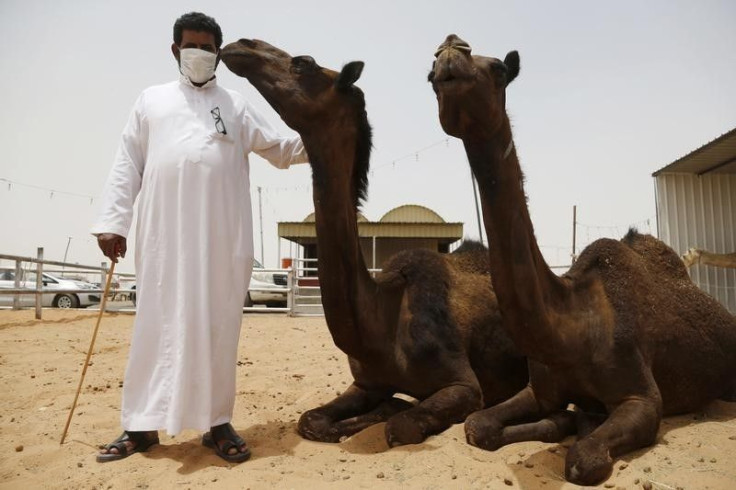MERS Virus Detected In The Air In A Saudi Arabia Camel Barn

Scientists in Saudi Arabia have found evidence of an airborne version of the deadly Middle East Respiratory Syndrome, or MERS, virus, in a barn that housed infected camels.
The virus found in the camel barn is believed to have claimed the life of the owner, and the latest finding suggests that the virus could now be transmitted through the air, Reuters reported. Having infected about 850 people in the last two years, of which 27 have died from the infection, MERS is a serious respiratory illness, caused by a virus known as a coronavirus, or CoV.
"The clear message here is that detection of airborne MERS-CoV molecules, which were 100 percent identical with the viral genomic sequence detected from a camel actively shedding the virus in the same barn on the same day, warrants further investigations and measures to prevent possible airborne transmission of this deadly virus," said Esam Azhar, an associate professor of medical virology at King Abdulaziz University in Jeddah, who led the study.
Athough scientists are unsure of its origin, there are several studies linking the virus to camels, with some experts saying that it might have made the jump to humans through close physical contact with the animal or through the consumption of camel meat or camel milk.
However, in the latest study, published by the American Society for Microbiology in its online journal, scientists said the detection of the deadly virus in air samples was worrying and needed special attention.
Saudi Arabia is where the vast majority of human MERS infections have been reported but isolated MERS cases have been reported across Europe, Asia and the U.S. among people who have recently travelled to the Middle East.
Viruses that spread through air, such as flu viruses, spread more swiftly and widely in human populations than those that are transmitted only through direct physical contact either between animals and human beings, or from person to person.
For their research, Azhar's team collected three air samples on three consecutive days from a camel barn near Jeddah, owned by a 43-year-old male MERS patient who later died from the disease. Four camels in the barn showed signs of nasal discharge the week before the patient became ill, with the man having applied a topical medicine to the nose of one of the sick camels a week before experiencing symptoms.
The scientists found that the first air sample, collected on Nov. 7, 2013, contained genetic fragments of the MERS virus. On the same day, one of the camels tested positive for MERS. Other samples did not test positive for the MERS virus, suggesting short or intermittent shedding of the virus into the air surrounding the camels, Azhar said, according to Reuters.
Further tests of the first air sample confirmed the presence of MERS genetic sequences and showed that the fragments were identical to those detected in the camel and its sick owner.
"This study also underscores the importance of obtaining a detailed clinical history with particular emphasis on any animal exposure for any MERS case, especially because recent reports suggest higher risk of (MERS) infections among people working with camels," Azhar said.
The World Health Organization and the Saudi Health Ministry have advised workers in camel farms and slaughterhouses to take precautions against MERS by ensuring good hygiene, including the frequent washing of hands after touching the animals, and the use of facial masks and other protective gear.
© Copyright IBTimes 2025. All rights reserved.





















